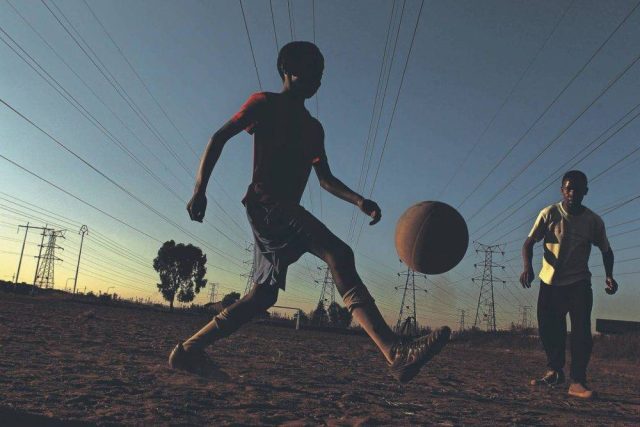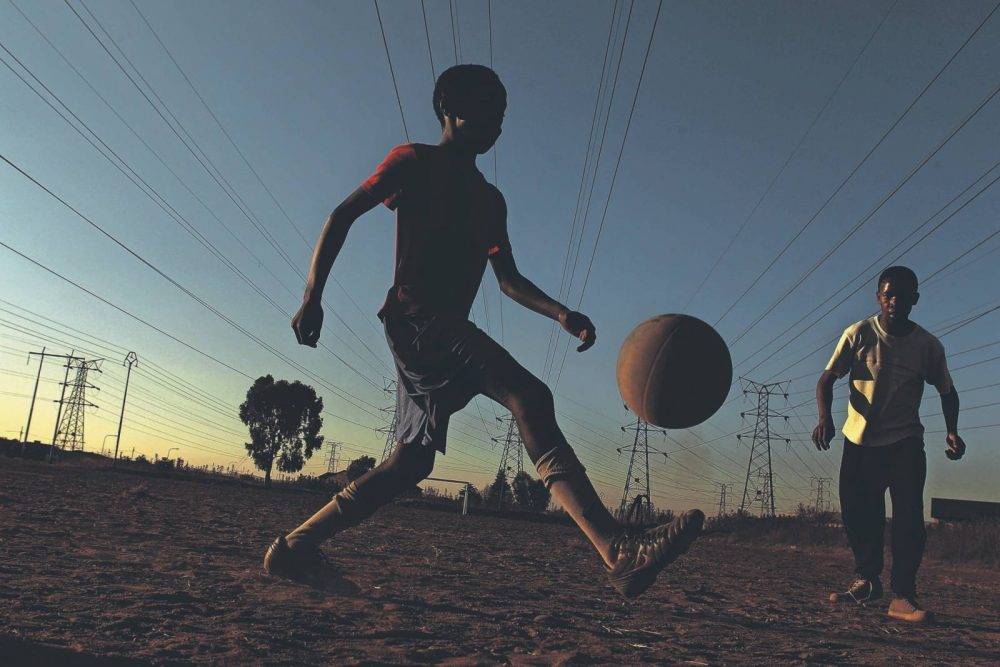

With the Springboks receiving plaudits for winning a fourth Rugby World Cup title in 2023, it’s easily missed that the country has won three world football championships in the past 30 years.
Yes — before choking on your morning hot beverage as if you’re the South African senior men’s cricket team playing a knockout match at a major international tournament — the country does boast three world football titles.
In 2003, 2007 and 2009, South Africa were crowned champions in the Danone Nations Cup Under 12 when they beat some of the best young players in the world.
It is a travesty that the country has not been able to come anywhere near replicating the boys’ achievements at senior level, having played a paltry three Fifa World Cups out of a possible eight since readmission to international sports in 1992.
Worse, only Kamohelo Mokotjo graduated through the ranks to play senior international football for South Africa from the nearly 40 players in the three successful under 12 tournaments.
This is mainly the fault of the failing South African Football Association (Safa).
It is no surprise that the bumbling men’s senior football team, Bafana Bafana, has been the country’s biggest disappointment in 30 years despite it being South Africa’s biggest sport by supporter numbers and monetary sponsorship.
Football is also the world’s most popular sport, with its governing body Fifa having more members than the United Nations.
A glimmer of hope shone in 1996, when Bafana Bafana won the African Cup of Nations — the continent’s flagship international tournament — in their maiden appearance at the event.
But that light quickly dimmed after a series of administrative blunders, starting with the axing of coach Clive Barker a year after he delivered Africa’s holy grail, steadily plunging the country’s football into darkness as if it was a state-owned electricity company.
The disappointment is illuminated by the fact that the women’s game, which is still largely amateur with no professional women’s football league after years of ANC-like broken promises, managed to become South Africa’s first senior football team to qualify for the knockout stages of a world cup.
This was after Banyana Banyana achieved the feat in 2023 at only its second-ever appearance at the global showpiece.
Banyana almost did not attain that commendable feat after payment disputes with Safa, which refused to add to the women’s contracts that they would receive their Fifa-guaranteed bonuses for all footballers depending on where in the tournament they reached.
For reaching the World Cup last 16, Banyana Banyana players — as of August’s dollar-rand exchange rate — will get more than R1.1 million each for making the knockout rounds. But first they had to boycott their final home warm-up game against Botswana in Ekurhuleni to bring their struggles with South African Football Association (Safa) president Danny Jordaan to the national fore.
All the gloom surrounding South Africa’s soccer scene should not detract from other sporting achievements the country has amassed over the past 30 years.
Who could forget coal miner Josia Thugwane’s celebratory waving of arms metres from the finish line and on his way to becoming South Africa’s first black athlete to win an Olympic gold medal when he clinched the marathon title at the 1996 Atlanta games?
What made Thugwane’s win more special was that, a year before his triumph, he was shot in the face and injured his back while jumping out of his moving car during a hijacking in his home province of Mpumalanga.
Acclaimed swimmer Penny Heyns — who won South Africa’s first two gold medals after readmission to the Atlanta games in the 100m and 200m breaststroke events — made waves for the country after her 1996 triumphs by breaking 11 world records in three months during the 1999 international season.
The sporting glory following the 1994 political breakthrough — including the Springboks’ 1995 World Cup win that was immortalised in a Hollywood blockbuster — ushered in hope for the country after decades of the repressive apartheid regime that relegated black people to second-class citizens in reservoirs of mental slavery and cheap labour known as townships and homelands.
That a boy who grew up in those horrid habitats and played cricket with no shoes until he was 15 eventually became the first and only South African bowler to take 10 Test wickets in a match at Lord’s cricket ground — the game’s spiritual home — in 2003 was testament to the sporting barriers the country was breaking after years of isolation.
The image of Makhaya Ntini from Mdingi in rural Eastern Cape kneeling to kiss the Lord’s pitch after his accomplishment is forever etched in the country’s memory as a lodestar to what is achievable in Africa’s southernmost land.
Or what about Jacob “Baby Jake” Matlala, who still holds the record as boxing’s shortest-ever world champion, having won four flyweight titles standing at his 1.47 metres and shattering the premium placed on arm reach in becoming successful in the sport.
There were many other sporting moments over 30 years worth celebrating, including hosting Africa’s first Football World Cup in 2010 — a tournament still spoken of highly as among the best organised of the 22 held since 1930.
But, besides the four rugby world titles, one cannot deny that South Africa has punched well below its weight over 30 years given the country’s love of sport that, to paraphrase Nelson Mandela, is more powerful in uniting people across demographics like nothing else.
With better administration in the next 30 years, one can hope that, along with more world records and achievements across sporting codes, the country will get its three football world cups — this time at men’s and women’s senior level.
The post Yes, we did win three soccer world cups appeared first on The Mail & Guardian.
Better administration, especially in football, could see the country punching above its sporting weight in the next 30 years
The post Yes, we did win three soccer world cups appeared first on The Mail & Guardian.




